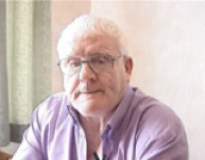Interview HA07

More about me...
Talking to other people who had had a heart attack helped him.
Talking to other people who had had a heart attack helped him.
I've been to one or two meetings and they've said, 'Oh I've had that and you know, I've done this and I've done that and this has happened.' I just go down and if anybody asks me I just say, 'I'm okay now, I've just got three scars, that's all.' I've had scars playing football, I've had my nose kicked in, it lasts for so long then it disappears, you forget about it.
Tai' Chi can help with breathing, relaxation and stress management.
Tai' Chi can help with breathing, relaxation and stress management.
It's not necessarily martial art Tai Chi, it's just breathing and exercise. I think it's done a lot of people in our group at our local town a lot of good, you know because there were a few elderly women and elderly men and they don't get much exercise anyway, but that Tai Chi was a nice slow, comfortable easy exercise so I think it helped them a lot.
It's another form of physio like, it's a steady form of physio and it gets you breathing properly and that's half the problem with a lot of people when they've come out of hospital. They've been in bed for a week or two and their breathing starts getting affected with being laid down all the time and it helps them to breathe better then.
Anything else about it that it was good for you?
I've always been interested in exercise and that and I just went to see what it were like. I've done yoga and I've done martial arts and stuff like that. It was just a form of exercise, you know it's another way of exercising. I mean, I'm used to vigorous exercise with being a PT instructor every day but that were just a calm exercise that you can do it more or less stood still.
You don't have to rush about and jump up and down, it's just standing still most of the time and balancing, it helps balance, helps your circulation.
Describes the exercises he did and the cardiac rehab programme he went to recover from bypass surgery.
Describes the exercises he did and the cardiac rehab programme he went to recover from bypass surgery.
Can you tell me about the cardiac rehabilitation that you went to?
Well it was just, you used to go for a talk at first, when you first started, just tell you what were happening and how your heart were recovering and your tablets, what your tablets were doing to help you recover and then we did a physio for one day a week, you went for a morning.
And we did circuit training for all different sorts of exercises so you went one day a week for that and that went on for about 40 weeks I think it was and they recommended that you did a bit of exercise, besides that exercise you were doing at rehab. So I used to go for a walk, take the dog for a walk or just cut grass.
I didn't dig garden because I hadn't to do any heavy work you know, any hard work. I used to just cut grass, walk up and down a few times, sit down, have a rest. It used to take me half a day to cut grass and it's only a small garden so plenty of time and just take things easy, don't rush things, just take it nice and easy. I haven't any problems, I haven't any twinges or ought like that you know.
He doesn't get stressed about what might happen in the future and carries on as he was before his heart attack.
He doesn't get stressed about what might happen in the future and carries on as he was before his heart attack.
Oh I just take it every day as it comes and don't panic, don't worry, don't get stressed. I think that's one of the biggest problems with anybody that's poorly or whatever, stress. Just don't let it get on top of you, push it to one side, just carry on as you are. Don't panic, like Mr Jones says, 'Don't panic'.
We've all got to die sometime, if you start worrying a lot, you cut a lot more life off. You start worrying, you get ulcers, so you've got another problem then, instead of just a heart problem, you've got ulcers. Don't worry about it. Just keep going, keep getting a bit of exercise, get some fresh air and take things easy.
Don't go rushing about, because I don't, well I've never rushed in me life, I never rush. There's always tomorrow that hasn't been touched yet. I just take it as it comes.

